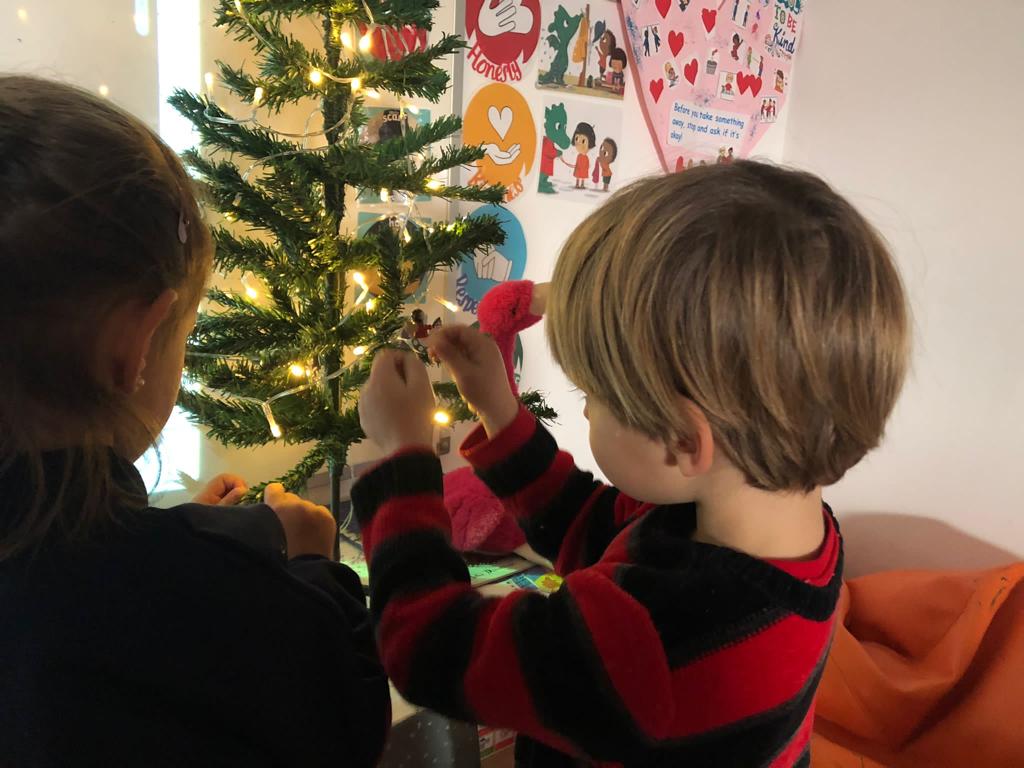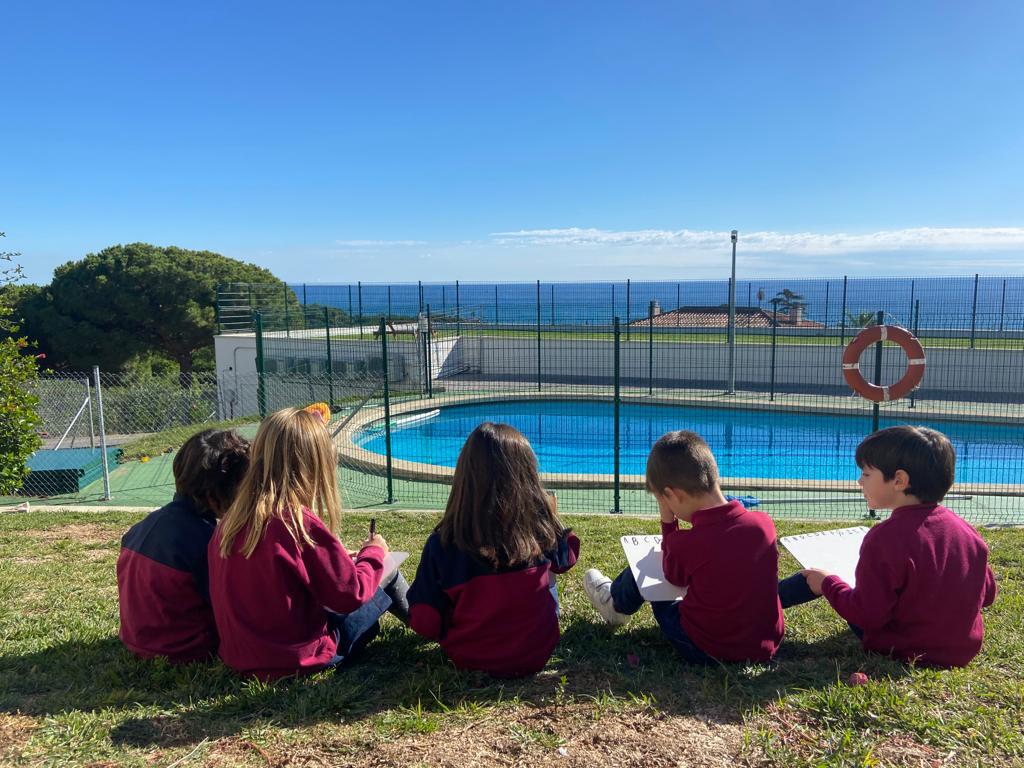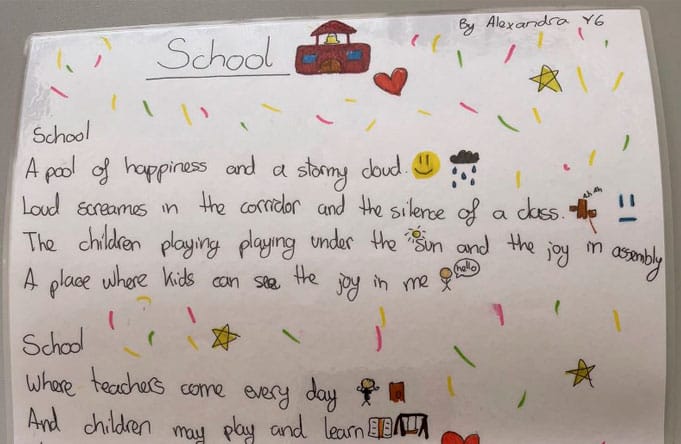LEARNING
Nurturing children’s interests and talents,
preparing for the future
LEARNING
A formal British education
We respect and recognise the different needs, interests and strengths of every student. Learning at the International School Maresme is differentiated and student-centred. With close interaction fostered between students and staff, we provide maximum opportunities in all areas of development – be it academic or our student’s personal interests and talents.
With all lessons taught in English, the British National Curriculum provides pupils with an introduction to the essential knowledge that they need to be educated, healthy and responsible citizens.
The National Curriculum forms one part of the school’s curriculum, and at International School Maresme we complement it with our Forest School, Emotional Education, UNICEF Rights Respecting Schools programme, as well as through the design of bespoke creative learning journeys and a wider school curriculum.
The British national curriculum is organised on the basis of four key stages and twelve subjects, classified in legal terms as “core” and “other foundation” subjects. The Secretary of State for Education is required to publish programmes of study for each National Curriculum subject, setting out the “matters, skills and processes” to be taught at each key stage. Schools are then free to choose how they organise this and what they may offer beyond the National Curriculum (Forest School, RRS, Creative Learning journeys).
At International School Maresme we set suitable challenges for each child, high expectations, providing inspiring academic challenges for pupils whose attainment is significantly above the expected, and responding to pupils’ needs and planning to overcome potential barriers to learning.
No two children are born alike, and so we respect and recognise the different needs, interests and strengths of every student. Our students are encouraged intellectually, socially and emotionally to achieve their full academic and personal potential.
EDUCATIONAL STAGE
Early Years
The Early Years Foundation Stage is comprised of our Nursery and Reception classes, with children aged between 3 and 5 years. The Early Years programme lays the foundation for every child to play an active part in their own learning, building life skills and learning tools through creative activities in a secure and nurturing environment, ensuring that the first experiences of school are stimulating, positive and paced according to the developmental needs of the individual. Parents and carers are active participants in the child’s first steps in formal education.
We follow the National Early Years Curriculum which is divided into 7 areas of learning:
- Communication and Language
- Physical Development
- Personal, Social and Emotional
- Literacy
- Maths
- Understanding the World
- Expressive Arts and Design
At International School Maresme children play, explore and take an active role in their learning. They benefit from a unique outdoor learning environment which provides an extensive range of learning opportunities and allows Forest School to be present on daily basis. Through encouraging independence, children demonstrate their creative and critical thinking and raise their own questions to extend their learning. Our teachers carefully plan the curriculum based around student needs and interests, providing the appropriate challenge at all times.
EDUCATIONAL STAGE
Primary
Children begin their Primary education in KEY STAGE 1, which is comprised of Year 1 and Year 2, honing in on the building blocks of reading and writing, using the skills of independence and creativity acquired in Early Years to build their knowledge of phonics.
They begin to put sounds together to make words and teachers ensure that each one progresses at his or her own pace by using personal interests and motivation as the springboard for learning to write through writing oneself. Reading one’s own text, reading in small teacher-led groups and excitedly sharing at home our rapidly developing literacy skills, all provide constant motivation and stimulation for our emergent readers and writers.
The foundation skills in Mathematics are built through active learning and problem-solving in a range of authentic contexts, maximising our natural resources outside the classroom, and assimilating the essential concepts in the four basic operations through first-hand experience.
We take our enthusiasm for learning on through KEY STAGE 2 (Year 3 through to Year 6) building on the skills-based learning approach initiated within our Foundation Stage and Key Stage 1. The imaginative, diverse and creative curriculum we teach is very carefully planned to meet the needs of our children and all topics have links to The Sustainable Development Global Goals as well as the Rights of the Child. Differentiated lessons pinpointing children’s personal learning targets are identified throughout the curriculum; assessment is both formative and summative, allowing teachers to build up a picture of the ‘whole child’.
We encourage children to develop the confidence to investigate and enquire, to solve problems and to take responsibility for their own learning. We aim to enrich their learning experiences, broadening their social horizons and cultural interests.
EDUCATIONAL STAGE
Secondary
Secondary education begins in KEY STAGE 3, from Year 7 to Year 9, with students aged approximately between 11 and 14 years. Mandatory subjects are English Language and Literature, Mathematics, Science, Spanish, Art and Design, History, Geography, Drama and Physical Education.
In KEY STAGE 4, during Year 10 and Year 11, students prepare for their IGCSE (International General Certificate of Secondary Education) examinations, taken at the end of Year 11. This is the equivalent of ‘ESO’ in Spain. Here, the core subjects of English Language and Literature, Mathematics, Science and Spanish are compulsory. Art and Design, Drama, French, History and Geography are electives at IGCSE. Students who wish to convalidate their studies in Catalonia must follow the Catalan and Spanish curriculum offered by the school, as prescribed by the local government or ”Generalitat”. This is optional for international students.’
OPEN ENROLMENT
Apply for admission
Our easy and straightforward admissions process is designed to help you get in touch with us quickly and comfortably by completing this simple contact form. Please read on for information that will help you in the process of applying and/or finding out more at International School Maresme.




